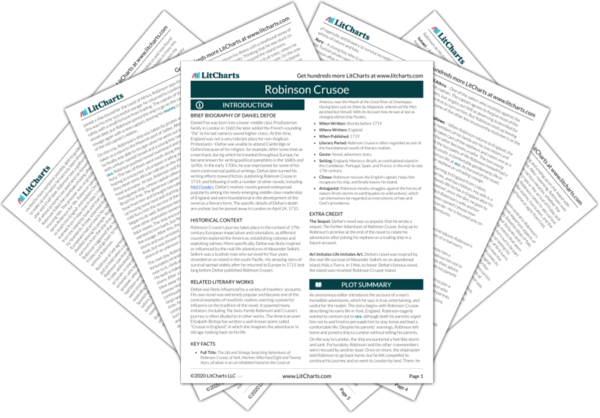LitCharts assigns a color and icon to each theme in Robinson Crusoe, which you can use to track the themes throughout the work.
Christianity and Divine Providence
Society, Individuality, and Isolation
Advice, Mistakes, and Hindsight
Contentment vs. Desire and Ambition
Strangers, Savages, and the Unknown
